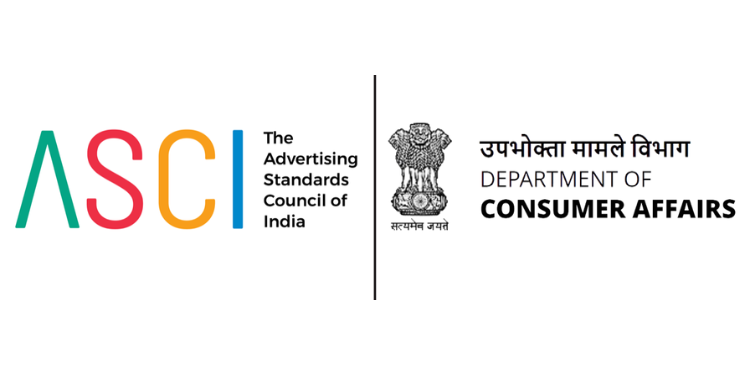Mumbai: CCPA and ASCI have partnered to combat misleading ads and to also strengthen ad regulation in the country. The move is expected to create greater deterrence and support enforcement
The CCPA has requested ASCI to forward any advertisement that is non-compliant with the ASCI Code and could potentially violate the Consumer Protection Act, 2019, along with its accompanying guidelines, to CCPA for appropriate action. Any such case escalated by ASCI concerning misleading advertisements will be promptly addressed and handled in strict accordance with the Consumer Protection Act 2019 by the CCPA.
This collaboration comes amidst the growing complexity of the advertising landscape, especially with respect to digital advertising.
The Department of Consumer Affairs (DoCA) and The Advertising Standards Council of India (ASCI) both operate with a mutual goal of protecting consumer interests. This objective is central to the missions of both ASCI and the Central Consumer Protection Authority (CCPA) when it comes to the issue of misleading advertisements.
It is noteworthy that ASCI’s code and associated guidelines in the area of advertising are harmonious with several guidelines enforced by the Central Consumer Protection Authority. These encompass guidelines concerning misleading advertisements, dark patterns, influencer guidelines, coaching institutes, greenwashing and more. In light of this alignment, the CCPA has recognised that any violation of ASCI’s code pertaining to misleading advertisements may potentially contravene the Consumer Protection Act of 2019 and its related guidelines.
Rohit Kumar Singh, Secretary DoCA said, “The alignment between ASCI’s code and CCPA’s guidelines highlights a collective effort towards promoting transparency and fairness in advertising. With similar objectives, CCPA and ASCI can work in complementary ways to ensure that any infringements are addressed effectively. New challenges are being created by digital advertising, and keeping pace demands a collaborative approach with like-minded bodies. Regulators working closely with self-regulators is an established best practice, and we hope that with this partnership, regulation of Indian advertising keeps getting more effective. Where voluntary compliance with the CCPA guidelines is not forthcoming, or in the case of repeat offenders, the CCPA has the powers to impose fines and penalties. We will not shy away from enforcing the provisions of the Consumer Protection Act as needed.”
Manisha Kapoor, CEO and Secretary-General ASCI said, “We have been working closely with DoCA and CCPA on several issues, and we are truly delighted to deepen this relationship. ASCI has deep expertise and specialization in advertising regulation and we thank CCPA and DoCA for their trust and their collaborative approach. A robust self-regulatory system helps all stakeholders and this partnership is a positive step in taking self-regulation to the next level.”
DoCA and ASCI have, in recent times, held joint consultations and collaborations on several issues surrounding advertising such as Influencer Guidelines, Greenwashing, Dark Patterns and Surrogate Advertising, creating greater dialogue and alignment between industry, civil society and regulators. Advertising self-regulators around the world work closely with the governments in models of co-regulation in formal and informal ways. Given the complex nature of advertising today and the borderless nature of the online space, issues like disguised advertising, deepfakes and scams are coming to the fore, such partnerships gain significance in effective advertising regulation.

















